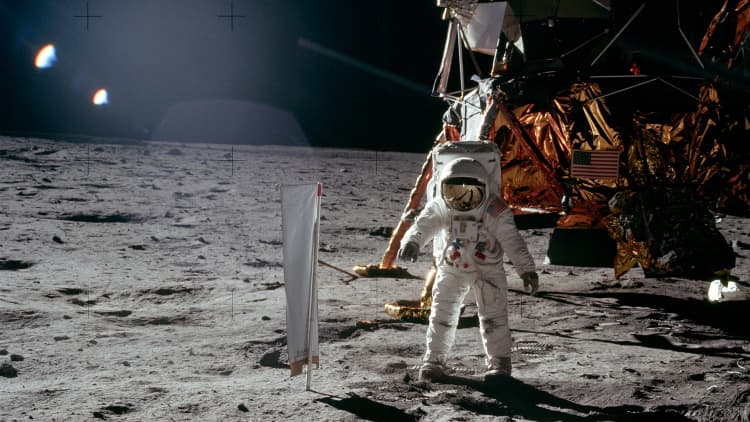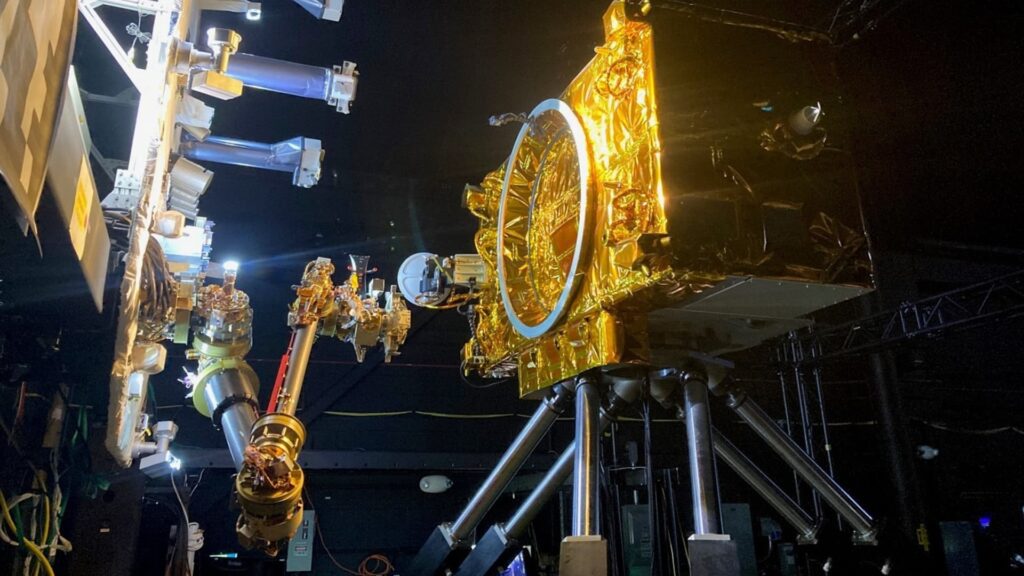“Grapple test” of the OSAM-1 spacecraft's robotic service arm.
NASA
NASA announced Friday the closure of a $2 billion project to test refueling satellites in space, after the agency's auditor criticized the program's main contractor, Maxar, citing “poor performance.”
The OSAM-1 project — on-orbit service, assembly and manufacturing — has been discontinued after nearly a decade of work, the space agency said in a statement.
In its announcement, NASA cited “ongoing technical, cost and schedule challenges, and the broader community's evolution away from refueling ill-equipped spacecraft, resulting in a lack of a committed partner.”
About 450 personnel support OSAM-1, but NASA is “committed to supporting the project workforce according to plan through fiscal year 2024,” the agency said in a statement to CNBC.
“While we are disappointed in the decision to discontinue the program, we are committed to supporting NASA in pursuing potential new partnerships or alternative uses for the hardware while the shutdown process is completed,” Maxar Space Systems spokesman Eric Glass said in a statement to CNBC.
Private equity firm Advent International acquired Maxar in May 2023 before splitting it into two companies: Maxar Intelligence, which focuses on satellite imagery and analysis, and Maxar Space Systems, which focuses on spacecraft manufacturing.
Sign up here to receive weekly editions of CNBC's newsletter on investing in space.
NASA's Goddard Space Flight Center in Maryland was leading work on OSAM-1, and Maxar Space Systems was the prime contractor for the project under multiple deals. OSAM-1 has been in development since 2015, with the aim of docking with the US-owned Landsat 7 satellite in orbit, repairing the aging spacecraft and refueling it to extend its life.
But OSAM-1 is years behind schedule, while the cost of the program to NASA has soared. In a scathing report in October, NASA's inspector general found “project cost increases and schedule delays were primarily due to poor Maxar performance,” noting that the agency's Goddard Center also suffered from key parts of the development.
“NASA and Maxar officials acknowledged that Maxar underestimated the scope and complexity of the work, lacked a full understanding of NASA's technical requirements, and lacked the necessary expertise,” NASA's inspector general said in his report, after a year-long audit.
The agency's auditor noted that OSAM-1 would likely “exceed its current price tag of $2.05 billion and its December 2026 launch date,” which was already six years behind schedule. The company “no longer benefits from its work on OSAM-1,” and from NASA's perspective, no longer appears to be “a top priority for Maxar in terms of the quality of its employees,” the report noted, citing Maxar representatives. “
NASA's cancellation of OSAM-1 comes months after Maxar delivered key parts of the spacecraft to Goddard in Maryland — but other key parts have yet to be finished.
Satellite service is an emerging sub-sector of the space industry that has only recently begun to prove successful, with Northrop Grumman The extension missions represent an early effort.

